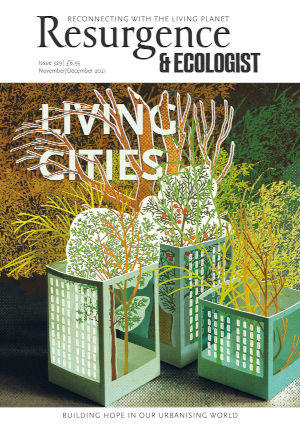Glasgow occupies a unique position in the UK, being the only largest city of our constituent nations that is not its capital. This quirk of history means it has continually been overshadowed and overlooked, particularly by its smaller, posher neighbour Edinburgh. The advent of the Scottish parliament in 1999 has, ironically, disempowered Glaswegians further. The SNP has deliberately centralised power at Holyrood (in Edinburgh) in order to boost ‘brand Scotland’ and strengthen support for independence. Whilst in England the last decade has seen the devolution of more powers to its city regions with the establishment of combined authorities and then metro mayors with key powers over their regional public transport networks, Glasgow has been left further behind.
The term ‘the Glasgow effect’ was coined in 2008 by public health professionals to explain the then unknown reason why Glasgow has such poor health outcomes – 30% higher ‘excess mortality’ – than similar post-industrial cities in England. Manchester and Liverpool are used as the main comparators, as they have similar levels of poverty and deprivation. Without urgent reform of Scotland’s governance structures this situation will only get worse.
Scotland still has the highly dysfunctional political structures defined in John Major’s Local Government etc. (Scotland) Act 1994. With just 32 unitary local authorities, it has become the least democratic country in the European Union, with a ratio of councillors to citizens of one to 4,270 – it’s one to 125 in France – leaving people feeling completely disempowered, a key cause of poor mental health. There are no functional mechanisms for redistributing resources or opportunity within Scotland’s regions, leading to stark inequalities in wealth and health, and there are none for planning and coordinating vital infrastructure and services, such as regional public transport.
We need a new regional authority to reclaim essential powers for the Glasgow city region, and to sort out the mess that Margaret Thatcher’s policy of bus deregulation and ScotGov’s road-obsessed centralised agency, Transport Scotland, have left our public transport in. Perhaps this new regional authority shouldn’t be quite as big as the old Strathclyde Regional Council (SRC), which represented half the country’s population, but it must have similar executive powers. It was the SRC’s power that fought off the privatisation of Scotland’s water in 1994, by holding a regional referendum on the matter, in which 97% voted No. Never mind a referendum on independence – I’d like us to use the SNP’s new Referendums (Scotland) Act 2020 to hold a local referendum on bringing all our city’s services and infrastructure back into democratic public ownership (particularly our buses! – see Setting the Stage for Better Public Transport, page 34). This is what Hamburg and other cities have done with their energy grids.
If ScotGov won’t give us these powers willingly, then we may need to win them back ourselves and then transform our broken political structures from within. And there are now organisations on the ground aiming at just that. Inspired by Barcelona en Comú, who took control of their city’s administration in 2015, SANE and Enough are working on a People’s Plan for Glasgow in the run-up to the local elections in May 2022. This will be a manifesto for the city, based not on toxic national politics, but on re-empowering citizens and working together to improve the places where we actually live – both things that are vital to tackle ‘the Glasgow effect’.






